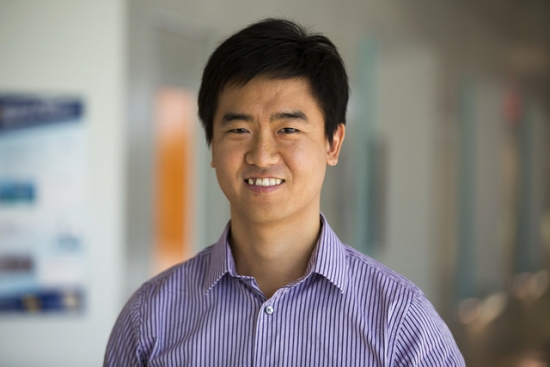Faculty Candidate Seminar
Expedition toward the Energy-Optimized Internet-of-Everything
Add to Google Calendar

This talk presents holistic approaches to realize energy-optimized Internet-of-Things (IoT) systems. The optimized "system integration' is a major challenge in IoT. A truly energy-optimal IoT solution can only be obtained by a cross-layer optimization that requires a full characterization of the complete end-to-end system. Addressing this critical technical challenge in emerging IoT applications, a cross-layer interdisciplinary research that spans wireless communication, signal processing, embedded systems, and VLSI hardware architecture is discussed in this talk.
Presented researches aim for ultra-low power (ULP) and/or energy-aware high performance digital communication and signal processing systems empowered by novel hardware-friendly algorithms and cross-layer optimized system architectures. Bridging the noticeable gap between communications/signal processing theories and VLSI circuit implementations, this talk introduces holistic solutions obtained by a rigorous theoretical analysis that considers practical implementation issues such as non-idealities in circuits and energy constraints in signal processing.
This talk summarizes recent research activities in the area of energy-optimized MIMO-OFDM communication systems for 5G/WiFi, ULP wireless communication systems for mm-scale smart-dust sensor nodes, mobile visual perception/analytics co-processor designs for autonomous driving, and near-zero power acoustic sensing/acquisition systems. These systems are all (planed to be) validated in real-time prototype platforms using commercial off-the-shelf components and/or custom ICs that are specifically optimized for proposed IoT applications.
Hun Seok Kim is an assistant research scientist and adjunct assistant professor at the University of Michigan, Ann Arbor. His research focuses on novel algorithms and efficient VLSI architectures for low-power/high-performance signal processing, wireless communication, computer vision, and machine learning systems. Before joining the University of Michigan, Kim worked as a technical staff member at Texas Instruments (TI, 2010 "“ 2014), while serving as an industry liaison for multiple university projects funded by the SRC and TI. He currently holds 8 granted patents and has 10+ pending applications. Kim received his B.S. degree from the Seoul National University (South Korea), and M.S. & Ph.D. degrees from the University of California, Los Angeles (UCLA), all in Electrical Engineering. He is a recipient of multiple fellowships from the Ministry of Information and Telecommunication (South Korea), Seoul National University, and UCLA.
 MENU
MENU 
